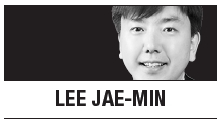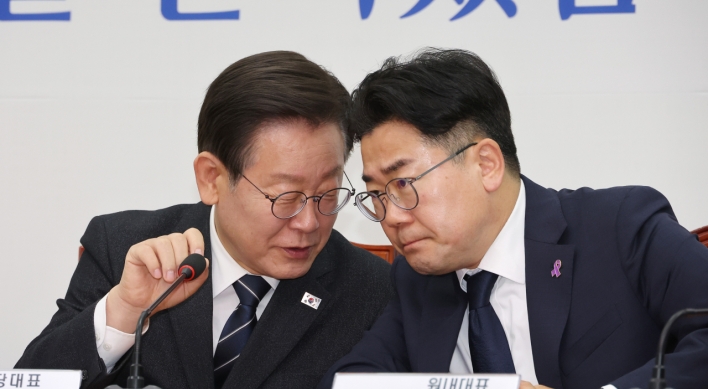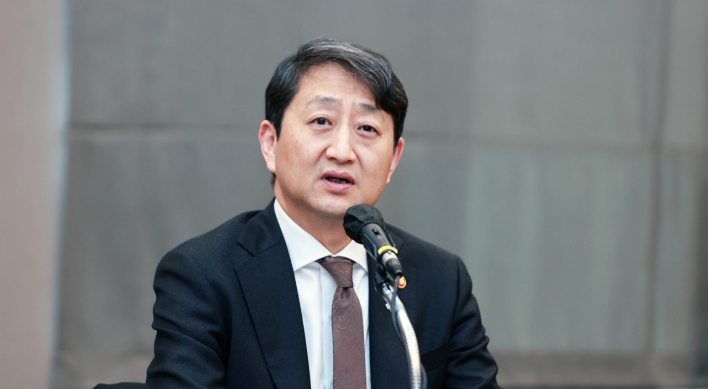It has been no secret that intelligence agencies of many countries are engaged in information gathering activities using all means available for the interest of their countries. When it comes to this issue, the initial reaction has almost become the pot calling the kettle black.
 If, however, one of the targets has been the head of state or the head of government, that is a somewhat different story. Tapping the phone conversation of the top official for a long period of time is way out of line. Diplomatic frictions aside, in most countries such activities are either illegal or raise delicate legal implications, although diplomatic staffs are subject to different rules.
If, however, one of the targets has been the head of state or the head of government, that is a somewhat different story. Tapping the phone conversation of the top official for a long period of time is way out of line. Diplomatic frictions aside, in most countries such activities are either illegal or raise delicate legal implications, although diplomatic staffs are subject to different rules.
After the reporting of U.S. National Security Agency’s eavesdropping of 35 leaders of other countries for a lengthy period of time, those countries mentioned in the list are now demanding explanations from their American friends. Korea has also submitted a query if it has been part of the bugging target.
Most likely, no meaningful answers will be provided at least officially, other than a diplomatic version of a short “sorry” note. Maybe this is just the tip of the iceberg and there are other countries with similar surveillance programs. The NSA was just not lucky this time around. But what has been disclosed so far seems to be more than enough to position this incident as one of the sticky issues in future dealings between these countries and Washington.
As more details are revealed, the level of criticism will escalate for some time. Although not stated explicitly, these countries on the list appear to harbor suspicions that the wiretapping may have provided key information for the issues being discussed or negotiated bilaterally at the time. They may be wondering what information at what time was “collected” in a bid to conduct some damage assessment, if possible. Efforts will then be made to ensure that similar things are not repeated: in fact, some countries are even preparing a U.N. resolution to criticize such surveillance of heads of states and governments.
Given the presumed value of this type of information, however, it is doubtful whether countries can indeed refrain from conducting similar monitoring in the future.
As long as technological feasibility is there, few could resist the temptation to snoop on the conversations of top officials of another country, be a friend or foe. In a digital age this type of information gathering is just one click away once initial technological infrastructure is set up.
After this incident, perhaps more advanced technologies will be commissioned and employed to leave no or fewer traces. One may find it nave to believe that a U.N. resolution or some hortatory covenants could force countries to turn off their switches once and for all.
On the other side of the line, states and agencies will mobilize all their resources to find ways and develop equipment to detect and deter foreign wiretapping. Cellphones and e-mails have made the life so easier and have become an integral part of the governmental decision making and implementation process. But the hefty price to be paid for this convenience is the increased vulnerability to outside penetration.
Until a completely sanitizable cellphone is somehow developed, prime ministers will have to carry multiple phones for different purposes and change the numbers regularly, or have their drivers bring them to a nearby pay phone to make a call. But then again wiretapping technologies will soon catch up these maneuverings (they may have already). Unfortunately, in an era of the waning trust in each other in the global community, this cat-and-mouse game will not stop.
By Lee Jae-min
Lee Jae-min is a professor of law at the School of Law at Hanyang University. Formerly he practiced law as an associate attorney with Willkie Farr & Gallagher LLP. ― Ed.
 If, however, one of the targets has been the head of state or the head of government, that is a somewhat different story. Tapping the phone conversation of the top official for a long period of time is way out of line. Diplomatic frictions aside, in most countries such activities are either illegal or raise delicate legal implications, although diplomatic staffs are subject to different rules.
If, however, one of the targets has been the head of state or the head of government, that is a somewhat different story. Tapping the phone conversation of the top official for a long period of time is way out of line. Diplomatic frictions aside, in most countries such activities are either illegal or raise delicate legal implications, although diplomatic staffs are subject to different rules.After the reporting of U.S. National Security Agency’s eavesdropping of 35 leaders of other countries for a lengthy period of time, those countries mentioned in the list are now demanding explanations from their American friends. Korea has also submitted a query if it has been part of the bugging target.
Most likely, no meaningful answers will be provided at least officially, other than a diplomatic version of a short “sorry” note. Maybe this is just the tip of the iceberg and there are other countries with similar surveillance programs. The NSA was just not lucky this time around. But what has been disclosed so far seems to be more than enough to position this incident as one of the sticky issues in future dealings between these countries and Washington.
As more details are revealed, the level of criticism will escalate for some time. Although not stated explicitly, these countries on the list appear to harbor suspicions that the wiretapping may have provided key information for the issues being discussed or negotiated bilaterally at the time. They may be wondering what information at what time was “collected” in a bid to conduct some damage assessment, if possible. Efforts will then be made to ensure that similar things are not repeated: in fact, some countries are even preparing a U.N. resolution to criticize such surveillance of heads of states and governments.
Given the presumed value of this type of information, however, it is doubtful whether countries can indeed refrain from conducting similar monitoring in the future.
As long as technological feasibility is there, few could resist the temptation to snoop on the conversations of top officials of another country, be a friend or foe. In a digital age this type of information gathering is just one click away once initial technological infrastructure is set up.
After this incident, perhaps more advanced technologies will be commissioned and employed to leave no or fewer traces. One may find it nave to believe that a U.N. resolution or some hortatory covenants could force countries to turn off their switches once and for all.
On the other side of the line, states and agencies will mobilize all their resources to find ways and develop equipment to detect and deter foreign wiretapping. Cellphones and e-mails have made the life so easier and have become an integral part of the governmental decision making and implementation process. But the hefty price to be paid for this convenience is the increased vulnerability to outside penetration.
Until a completely sanitizable cellphone is somehow developed, prime ministers will have to carry multiple phones for different purposes and change the numbers regularly, or have their drivers bring them to a nearby pay phone to make a call. But then again wiretapping technologies will soon catch up these maneuverings (they may have already). Unfortunately, in an era of the waning trust in each other in the global community, this cat-and-mouse game will not stop.
By Lee Jae-min
Lee Jae-min is a professor of law at the School of Law at Hanyang University. Formerly he practiced law as an associate attorney with Willkie Farr & Gallagher LLP. ― Ed.



![[AtoZ Korean Mind] Does your job define who you are? Should it?](http://res.heraldm.com/phpwas/restmb_idxmake.php?idx=644&simg=/content/image/2024/05/06/20240506050099_0.jpg&u=)














![[K-pop's dilemma] Is Hybe-Ador conflict a case of growing pains?](http://res.heraldm.com/phpwas/restmb_idxmake.php?idx=642&simg=/content/image/2024/05/07/20240507050746_0.jpg&u=)